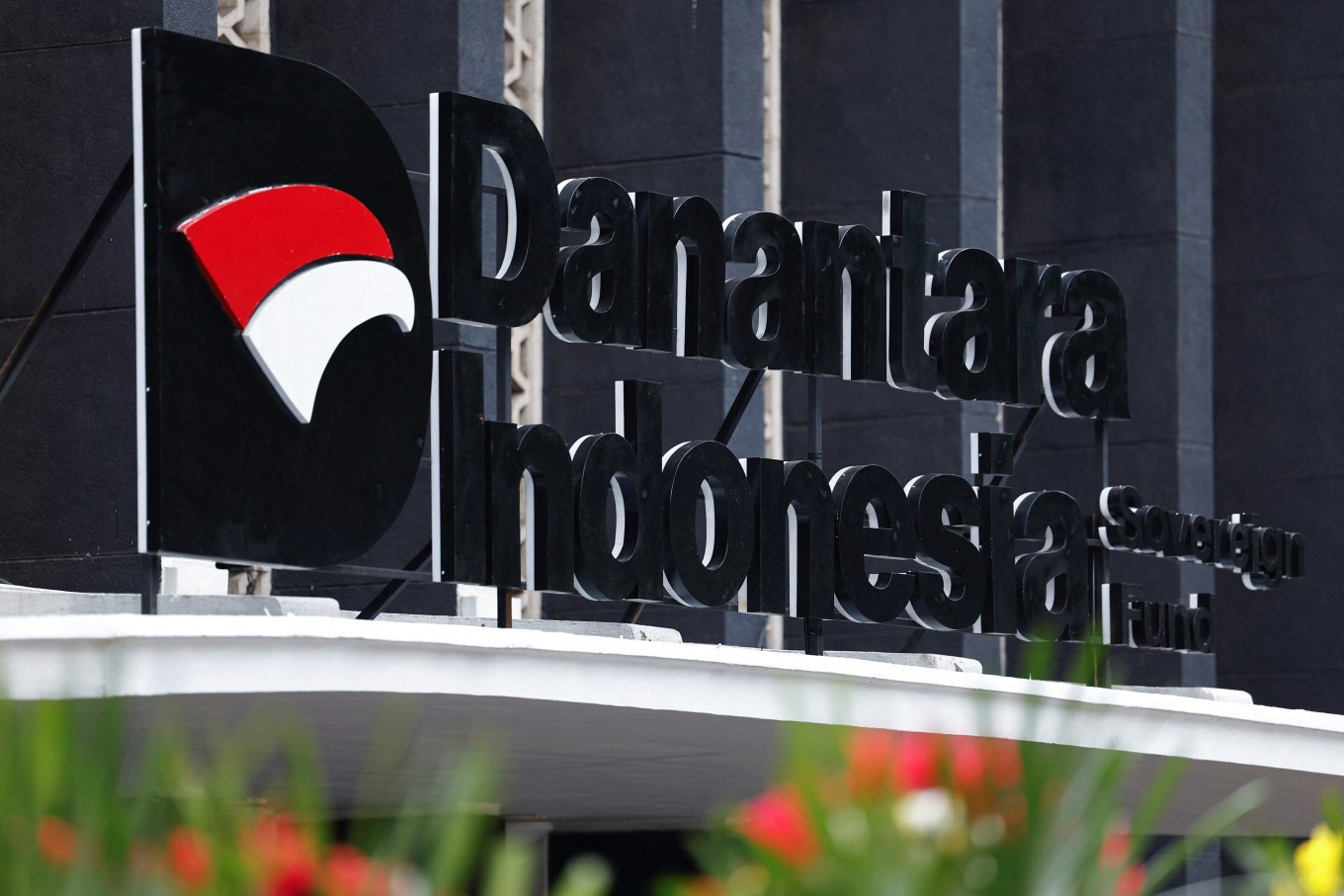News
Agrinas CEO exit puts spotlight on Danantara’s role
Tenggara Strategics August 19, 2025 The logo sign of the country’s second sovereign wealth fund, Daya Anagata Nusantara (Danantara), adorns the frontispiece of its headquarters in Menteng, Central Jakarta, as seen on Feb. 28, 2025. (Reuters/Willy Kurniawan)
The logo sign of the country’s second sovereign wealth fund, Daya Anagata Nusantara (Danantara), adorns the frontispiece of its headquarters in Menteng, Central Jakarta, as seen on Feb. 28, 2025. (Reuters/Willy Kurniawan)
Joao Angelo De Sousa Mota has abruptly stepped down as president director of PT Agrinas Pangan Nusantara after just six months, putting a spotlight on the Daya Anagata Nusantara (Danantara) Investment Management Agency’s role and commitment in the food estate program. At the heart of his resignation was frustration over what he described as Danantara’s failure to prioritize and adequately fund Agrinas Pangan, stalling the SOE’s work mandate to support President Prabowo Subianto’s goal of achieving national food sovereignty.
Mota’s departure was accompanied by sharp criticism of both Prabowo’s aides and Danantara. He warned that 90 percent of Indonesia’s agricultural sector is controlled by the private sector; an imbalance he argued is dangerous for the country’s food security. He described an “extraordinary invasion” of the sector, where farmers are reduced to laborers on their own land, and claimed that large private-sector companies operate like a food cartel. These structural issues, he alleged, are compounded by powerful rice mills that exploit smallholder farmers, sell substandard rice and even dilute products.
According to Mota, Danantara’s actions worsened the situation. As Agrinas Pangan’s parent entity, the agency is tasked with supporting agricultural and food programs, yet he claimed these were not ranked highly on its agenda. He cited slow administrative processes and the fact that Agrinas Pangan’s budget had not been disbursed since his appointment, despite the company having prepared its agricultural programs. He also complained that Danantara repeatedly requested feasibility study results, even though he had already submitted them three to four times. Such delays, Mota argued, undermine the pace of Indonesia’s food sovereignty push and reflect a broader “bureaucratization” within Danantara.
Mota, appointed as Yodya Karya president director on Feb. 10, brought with him a background in food-sector activism. He chairs the East Nusa Tenggara Regional Board of Supervisors for Tani Merdeka Indonesia, a farmers’ group affiliated with the ruling Great Indonesia Movement (Gerindra) Party. He is known to be personally close to Prabowo. He also co-authored The Fight for Freedom of Timor Loro Sa'e People: A Plus Trilogy with Octavio Soares, advocating for Timor-Leste’s reintegration into Indonesia.
Agrinas Pangan was formed alongside Agrinas Palma Nusantara (oil palm plantations) and Agrinas Jaladri Nusantara (fisheries) from the transformation of engineering consulting SOEs Yodya Karya, Indra Karya and Virama Karya, respectively. Before their restructuring, the three companies each reported net incomes in the tens of billions of rupiah. They operate separately from plantation holding SOE Perkebunan Nusantara (PTPN) III and food holding SOE Rajawali Nusantara Indonesia (ID Food).
Under the food estate program, Agrinas Pangan was tasked with managing 425,000 hectares (ha) of farmland by the end of 2025. The three Agrinas SOEs were initially slated to receive Rp8 trillion (US$494.4 million) in combined state capital injections from the Finance Ministry, but this responsibility shifted to Danantara. Mota had projected Agrinas Pangan could produce 55,000 tons of unhulled rice in 2025 from 11,000 ha in South Sumatra.
Mota’s exit follows a July 2025 leadership reshuffle at Agrinas Palma, suggesting that Danantara’s reluctance to fully support Agrinas Pangan may stem from similar setbacks and the Agrinas group’s limited institutional expertise in agriculture. According to a source within a plantation company, Agrinas Nusantara Palma is struggling to manage and develop palm oil plantations obtained from the confiscation of illegal land. The government should consider consolidating the Agrinas SOEs back into a single engineering consultancy and transferring their agricultural and plantation mandates to PTPN III and ID Food.
Mota’s resignation adds to growing uncertainty over whether the food estate program remains a true priority for both the government and Danantara. The setbacks facing Agrinas Pangan, and earlier troubles at Agrinas Palma, underscore the risks of placing strategic food programs under entities with limited agricultural experience and cumbersome bureaucracy. Without decisive funding, streamlined processes and clear accountability, the food estate initiative risks becoming another stalled policy ambition, leaving Indonesia’s food sovereignty goal further out of reach.
What we've heard
A source said Danantara may have underestimated the wrong person. Mota is known to have a long-standing personal closeness to President Prabowo, with ties dating back to the Timor Timur conflict, and is regarded as an honest loyalist who gets things done without seeking excessive credit. Yet, in the six months since he became president director of Agrinas Pangan, Danantara has provided him with no budget, despite the Finance Ministry having previously allocated Rp8 trillion to the company to strengthen food security.

